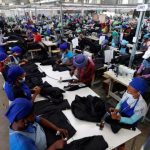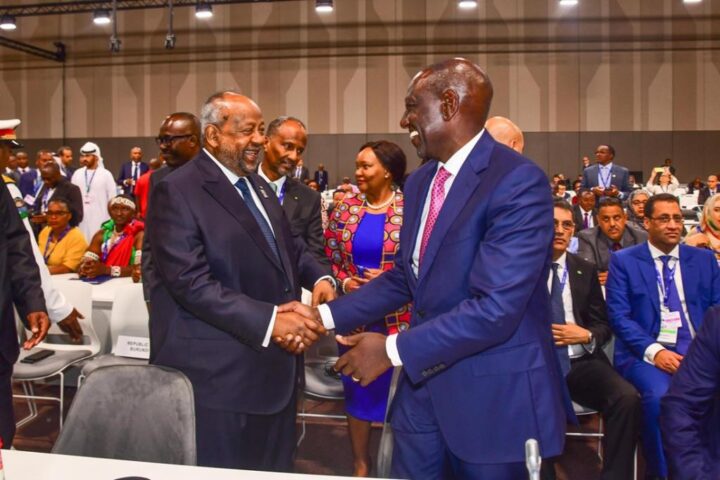Gunmen suspected to be members of the Islamic State of West Africa Province (ISWAP) terrorist organization, late Tuesday night, laid siege to Nigeria’s Kuje Correctional Facility in Abuja and freed about 800 of the 994 inmates.
Jail break has become a common trend in Nigeria – and there have been 14 other major incidents, among many more unsuccessful attempts – since the September 3, 2015 Sokoto Remand Home break where 13 inmates allegedly escaped. This goes to prove the level of pressure mounted on Nigerian prisons as these widespread attacks are not peculiar to any section of the country.
The attacks happen despite repeated assurances by government of proactive steps to wedge recurrence. Evidently, the claims by Nigeria’s Minister for Interior, Ogbeni Rauf Aregbesola, that all correctional facilities in Nigeria were fortified after the Oyo State jail break, is doubtful. Otherwise, the attacks, even if persistent, would not have been as successful as they have become.
Join our WhatsApp ChannelThere have been at least three different jail breaks since the October 22, 2021 attack on Abolongo Prison in Oyo where about 837 inmates escaped. The attacks on Jos Medium Security Prison and Mandala Prison, Ilorin, in addition to Agbor Prison in Delta State, where the fence collapse led to escape of three inmates, are all recent cases.
On the July 5, 2022 Kuje Prison jail break, authorities said one official, four inmates and many of the invaders died in an attack that lasted about two hours. About 350 of the escaping prisoners have since been captured, while 450 others are still at large.
The terrorists who operated with explosives and guns allegedly overpowered the prison security because of their large number and superior firepower. Among those released by the invaders were kidnappers, bandits and 69 apprehended Boko Haram members.
President Muhammadu Buhari visited the place shortly before jetting off to Dakar, Senegal to participate in the International Development Association (IDA) for Africa Summit. At the scene, the obviously bemused president reportedly demanded to know, why the defenses at the prison failed to prevent the attack? How many inmates were in the facility? How many of them the prison authority could account for? How many personnel were on duty? How many of them were armed?
The president further demanded to know if there were guards at the watchtower; what the guards at the watchtower did to quell the attack, and if the CCTV was functional?
Prime Business Africa considers those questions a national embarrassment considering that it came from the Commander-in-Chief of the Armed Forces. In other societies, leaders provide answers to complex questions. For the avoidance of doubt, those were the questions a President should be busy providing answers to.
Unfortunately, President Buhari’s latest action appears a proof of the allegation by many that the federal government has mastered the art of shifting blames, evading critical national questions or accepting responsibility for any anomaly in the country. By asking those questions, the president has demonstrated that, not only is he not in charge of the security ecosystem, but is probably unaware of his responsibility as leader of all Nigerians.
As Commander-in-Chief of the Armed Forces, President Buhari is directly in control of the Department of State Security (DSS), National Intelligence Agency (NIA), Directorate of Military Intelligence (DMI), and the Police, among others. The National Security Adviser also works directly under Mr President. Like every other president before him, we believe that he periodically, if not daily, receives detailed intelligence reports from those departments and agencies. How then did they not warn the president about the attack beforehand? How manage the military formations within reach didn’t respond? The military could have quelled an attack of that magnitude if they were involved.
These are the questions the president should be saddled with. Nigerians are even more worried that apprehended Boko Haram terrorists, were kept in a medium security prison, in spite of knowledge of the sophistication of the group. Members of a group that could successfully launch attack on the Nigerian Defense Academy (NDA), Kaduna, and sustain a war against the nation’s military over a 10-year period are obviously not the type that should be kept in a medium security prison, especially in a country that has maximum security prisons. This arrangements is perhaps, the reasons many Nigerians allege that some officials could have been priming for their escape.
Moreover, should apprehended members of a known terrorist sect with international support be kept close to the nation’s seat of power? Definitely, a lot of questions require answers concerning the countries security.
Prime Business Africa believes that there is no moral justification for the announced intentions of the president not to cancel his scheduled visit to Dakar Senegal in the wake of the attack. The release signed by Mallam Shehu Garba, presidential spokesman, insisted that “to cancel the trip to Senegal would mean that the terrorists are successful in calling the shots, something that no responsible government in the world will allow”. He further stressed that “governments don’t stop working because nations face terrorist threats.”
Tough as that may sound, it is certainly not the best response to the situation at hand. Nigeria’s president cannot afford to come across as an Emperor Nero who played flute while Rome was on fire, except the security of the nation is not important to him. A situation where over 400 Nigerians, including those awaiting trial, were unaccounted for cannot be trivialized by a President. There has been no news as to whether they truly escaped or were abducted by the terrorists. These issues would have been problem enough to demoralize a caring president who is responsible for the life of his citizens.
Regrettably, during the visit to Dakar, President Buhari had the pleasure to receive “L’Ordre National De Lion Senegal” the Highest National Honour of the Republic of Senegal. While, we are yet to establish the reasons for the award, it’s our opinion that it’s ill timed. Nigeria’s president cannot be receiving award at a time, he should be mourning the death of his citizens, including a gallant officer who died defending the integrity of the country.
We have insisted on our previous editorial which argued that welfare of citizens remains the primary responsibility of any government, without which there is no need for government at all. The life, properties and interests of citizens should be the paramount concern of government. Even a convict has his fundamental rights protected, how much more an inmate who is awaiting trial and who by law is presumed innocent until proven guilty by a court of law!
Prime Business Africa thinks that the government, should this time walk the talk by ensuring the safety of Nigerian citizens irrespective of where they are –prison or palace.
We reiterate the fact that before the attack on Kuje Prison, terrorists suspected to be members of the same Boko Haram sect, had attacked the convoy of President Buhari in his own Katsina State. That’s both terrible and audacious.
If the presumably most secured is not safe, who then can be? As rhetorical as this question may sound, Nigerians still deserve some answers. We suggest that Nigeria’s correctional facilities be annexed to military formations for greater protection in the event that security of prisons can no longer be guaranteed.
















![Gender Activism An Economic Necessity In Africa [PBA Editorial]](https://www.primebusiness.africa/wp-content/uploads/2023/11/vaw-720x480.png)

Follow Us